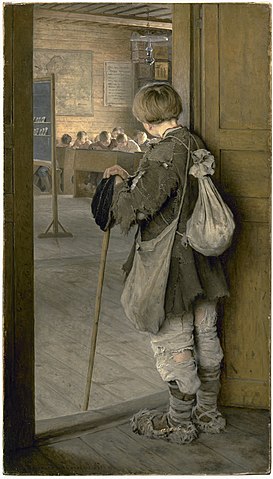
When to use less and when to use fewer.
Even native speakers of English often make mistakes about when to say or write less or fewer. As is sometimes the case, it can be forgiven to make a mistake about this when speaking to a farang professor. Yet standards for correct grammar in writing a paper or thesis are much higher than for ordinary conversation. Even during an informal chat, making too many grammatical errors is not a good idea if you want to impress the other person with your intelligence. So all in all, even if some Americans or British people get this kind of rule wrong, it is worth taking the time and trouble for you to get it right.
When to use fewer.
Fewer is the word to use when you are referring to something plural which can be counted. So these would be correct:
There are fewer students in the graduating class of my university than last year.
I made fewer mistakes in my English grammar exam this time.
There are fewer fried shrimp on my plate than on yours.
Lek has fewer friends than her sister.
When fewer than four students attend any lecture, it is cancelled.
I have fewer Cs and Ds on my transcript than Nui has.
In all of the above cases, fewer applies to something plural which can be counted.

When to use less.
By contrast, less is used when the matter cannot be counted and does not have a plural form.
Nui makes less money at his job than I do.
It rains less in the Arizona desert than in Bangkok.
I have less time to play badminton this term than last term.
Note that if you wanted to discuss the hours you have available to play badminton, since hours can be counted you would say:
I have fewer hours to play badminton this term than last term.
When I have an exam the following day, I watch less TV at night.
Again, if you wanted to say something similar but use the word fewer, you could say:
When I have an exam the following day, I watch fewer TV programs at night.
This is because TV programs, unlike just TV, are plural and can be counted.
More of less.
We also use less before nouns involving measurements, distance, or time. So we say:
The football match took less than two hours.
Ayutthaya is less than 90 minutes away from Bangkok.
Nui can run two kilometers in less than 12 minutes.
The academic recess begins in less than three weeks.
Sample sentences:
If there were fewer automobiles in Bangkok, there would be less air pollution.
If there was less hatred in the world, there would be fewer wars.
Since I drink fewer Thai iced teas now, I consume less caffeine and sugar.
Now that I spend fewer days in Bangkok, I breathe less polluted air.
In the above sentences, each time something is plural and can be counted, fewer is used. While if it is not plural and cannot be counted, then less is used.

A phrase to avoid.
Sometimes Thai writers of academic English add unneeded words to make a grand effect or sound more serious. This always results in more wordy writing that is difficult to read. Some Thai writers of English use the clumsy term “fewer in number.” This is a longer way of saying fewer, and adds nothing except a couple of extra words. Avoid using the expression “fewer in number,” since everything that is fewer is obviously fewer in number.
When English grammar experts argue.
Since life is not simple, why should English grammar be? If you keep in mind the above rules, you should be safe almost all of the time. Quite often you will see mistakes in common usage of English in English-speaking countries. In overseas food stores, cash registers might be labelled “For 8 items or less.” Clearly to be correct, these signs should read: “For 8 items or fewer.” Keep in mind that if you are writing a paper or thesis, you will want to use better quality English than is found in shops, even those in the UK or America. Some people may squabble over a few examples, such as whether it is correct to write:
Fewer than one hundred students attended the lecture
or
Less than one hundred students attended the lecture.
Technically speaking, the correct answer would be fewer, even if many or most English speakers would use less. There is also the phrase “no less than.” Even when applied to plurals, less is generally used rather than fewer in customary usage:
No less than 18 students protested the grade they had received.
Yet you would also be correct to say:
No fewer than 18 students protested the grade they had received.
If you follow the above rules strictly, you should never go wrong. You might seem a little fussy about English grammar, but that is a good thing to be.

(all images courtesy of Wikimedia Commons).
